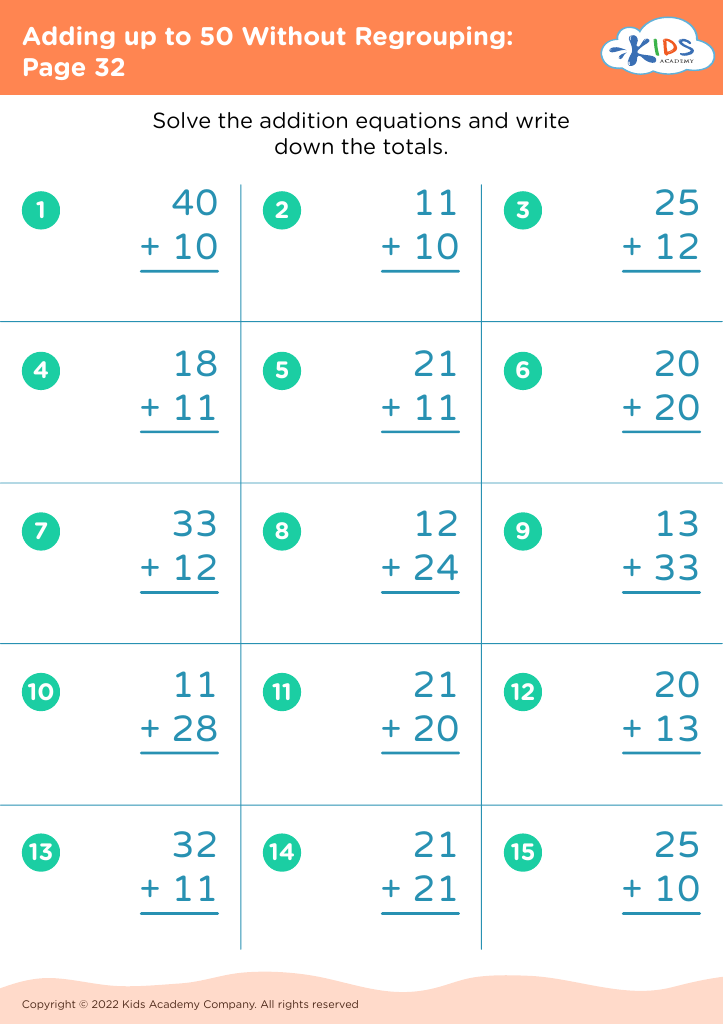Counting objects Adding up to 50 Worksheets for Ages 8-9
4 filtered results
-
From - To
Looking for effective and engaging worksheets to help your 8-9-year-old master counting and addition? Our "Counting Objects Adding up to 50 Worksheets" are perfect for young learners! These printable activities combine fun with fundamental math practice, allowing children to count various objects and add them up to 50. Ideal for building a strong mathematical foundation, these worksheets enhance number sense and counting skills. Perfect for classroom use or home practice, they make learning math enjoyable and approachable. Give your child the tools they need to excel in math with these interactive and educational worksheets!
Counting objects and adding up to 50 is a crucial skill for children aged 8-9 because it builds a strong foundation for more complex mathematical concepts. At this developmental stage, kids transition from simple counting to understanding more abstract number concepts and operations, which are fundamental for their future academic success.
Focusing on counting and addition helps in several ways. Firstly, it enhances their number sense - an intuitive feel for numbers and their relationships. This ability to practically visualize and manipulate numbers helps students understand more complex arithmetic operations later on. Secondly, proficiency in these basic skills builds confidence in their own mathematical abilities and promotes a positive attitude towards learning math.
Additionally, mastering counting and addition to 50 aids cognitive development. It practices memory, attention, and problem-solving skills. It also enables children to relate numbers to real-world contexts, such as handling money, telling time, and understanding quantities, which fosters practical life skills.
Teachers and parents who emphasize these skills provide children with a crucial toolset for their educational journey. These competencies form the basis for more advanced topics such as multiplication, division, and fractions. Ensuring children grasp these early concepts well supports their overall academic growth and future mathematical achievement.




















